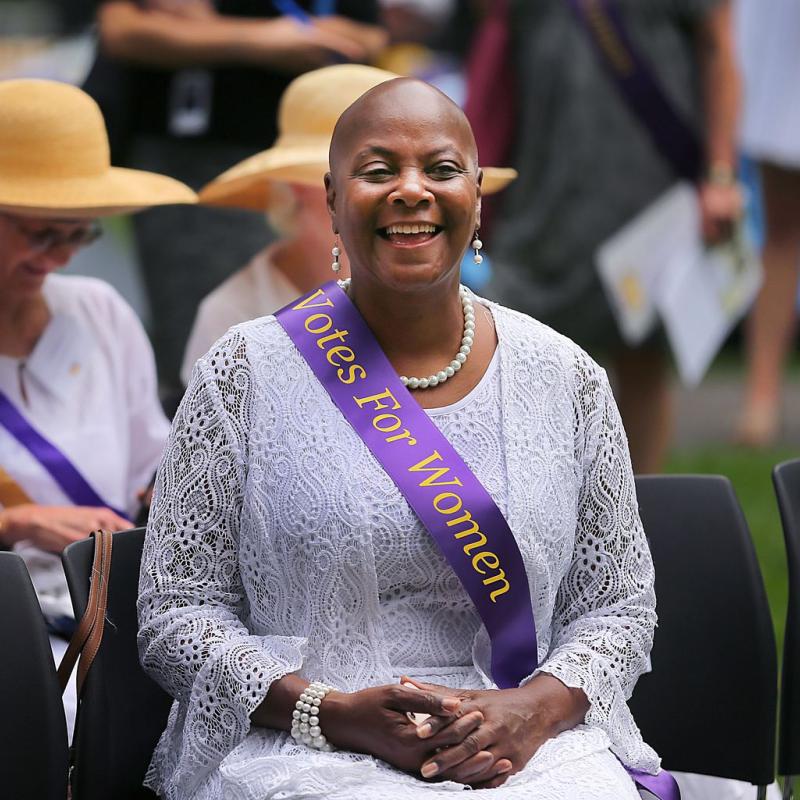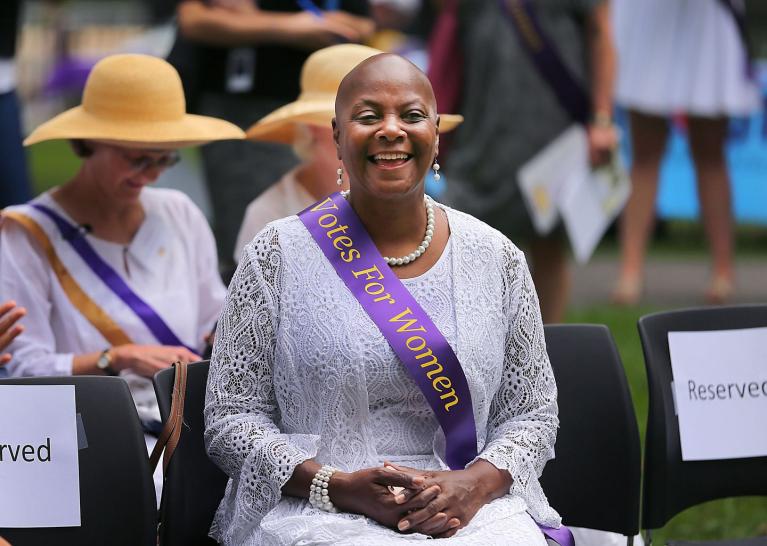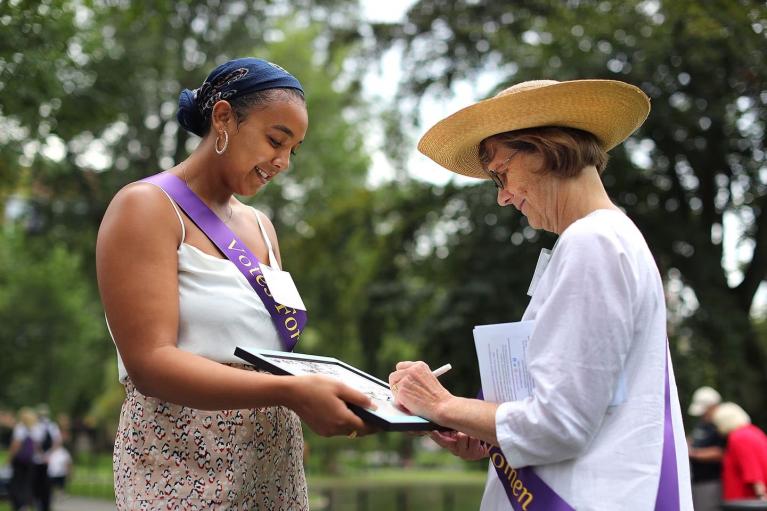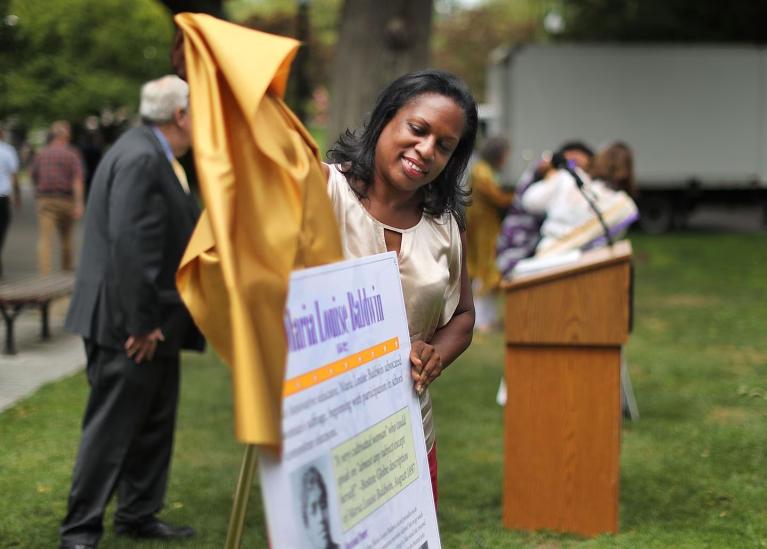Editor's note: the following story originally appear in The Boston Globe, written by Alison Kuznitz.
As swan boats draped with suffragist sashes drifted in the Public Garden lagoon, local activists on Friday invoked the cruel realities of the 19th Amendment that pitted black and white women against one another.
African-American leaders, in a poignant celebration of Women’s Equality Day, shared the stories of trailblazers who fervently believed in voting rights, even while battling discrimination at marches and conventions.
They spoke of the legacies of women such as Sojourner Truth, Josephine St. Pierre Ruffin, and Maria Louise Baldwin, who witnessed their white counterparts rejoice in casting ballots in 1920 even as Jim Crow laws barred black women from polling stations.
“We must learn these stories. I hope this will inspire us,” Fredie Kay, president of The Women’s Suffrage Celebration Coalition of Massachusetts, told more than 100 people gathered in the shade near the lagoon. “They were strong, bold, and remarkable.”
At Friday’s event, dubbed “Sheroes,” posters highlighting the three suffragists with strong ties to Massachusetts were unveiled, building upon a display housed in the Commonwealth Museum. The posters featured historical photos, impassioned quotes advocating for equality, and biographical information that characterized the suffrage movement.
The celebration was co-hosted by the coalition, the Commonwealth Museum, and the Mayor’s Office of Women’s Advancement.
Attendees, mainly women dressed in symbolic hues of purple and white, cheered as speakers emphasized the need for increased civic engagement amid heated political rhetoric about race.
Some attendees wore sashes emblazoned with the message “Votes for Women,” while others donned pins featuring a bluebird, a historical image that united suffragists against those who opposed passage of the 19th Amendment.
Katrina Huff-Larmond, a Randolph town councilor, drew parallels between her experience as a modern-day black woman and that of Baldwin, a Cambridge-born educator who lived from 1856 to 1922.
Baldwin was the only black school principal in New England at the time, according to the coalition. Meanwhile, Huff-Larmond, who teaches at Boston University and Simmons University, said the majority of her master’s degree students never had an African-American teacher before her.
“What must Baldwin have gone through to be one of the first black educators? Imagine how difficult that was,” Huff-Larmond said in her remarks, lamenting a century-old status quo. “Again, this is 2019, and we’re still going on ‘the first.’ ”
Tanisha Sullivan, president of the NAACP’s Boston branch, marveled at the fearlessness of Ruffin, a Boston-born journalist and publisher born in 1842. In the 1900 “Ruffin Incident,” the fiery suffragist once walked out of a women’s club convention in Milwaukee, after learning that she could represent the plight of only white suffragists — not that of African-Americans, as well, according to the coalition.
The fight for equality and self-determination, Sullivan said, continues today.
“We must be uncompromising in our advocacy,” Sullivan said during her remarks.
Before the celebration began, Edith Harkins grinned widely, adjusting her purple sash as she looked expectantly at the display panels. Harkins said she regularly participates in suffragist activities, especially as the centennial celebration of the 19th Amendment approaches in 2020.
“These women never gave up . . . It’s inspiring with everything going on in the world,” Harkins said. “They really need to be remembered.”
Alison Kuznitz can be reached at alison.kuznitz@globe.com. Follow her on Twitter at @AlisonKuznitz.



